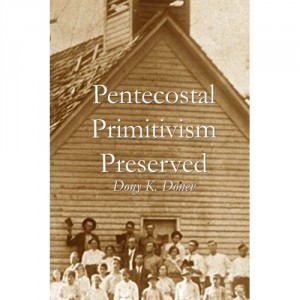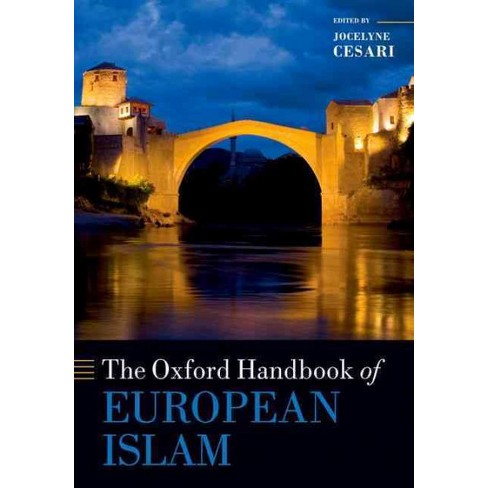PENTECOSTAL BABEL
PENTECOSTAL BABEL
As we reflect upon Pentecost Sunday, I submit here my recently published article in the preaching journal of Columbia Theological Seminary. I was pleased that this piece was made the lead article in the Pentecost edition of the Journal for Preachers (just ahead of Walter Brueggemann’s contribution, which made me feel pretty good!). The article is also a smattering of one of the chapters of my upcoming theological memoir, which is presently being copy-edited by Cascade Books. I welcome your comments and criticisms!
“NOW, DO NOT GO FROM THIS MEETING AND TALK ABOUT TONGUES, BUT TRY TO GET PEOPLE SAVED!”
WILLIAM SEYMOUR, THE AZUSA STREET MISSION
One of the reasons that I voraciously enjoy the Journal for Preachers is that I am a Pentecostal. I find myself terrifically motivated by the perspectives of this community of mainline Protestant preachers, who seem to so effortlessly move exegetical and theological dirt around the jobsite to uncover treasures I would never otherwise discover. In this collegial spirit, I thought our readers might enjoy a Pentecostal perspective on the Day of Pentecost, particularly the phenomenon that pushes the entire story off the ground: the gift of tongues. In circles where the emphasis of Acts 2 is typically placed on the birthday of the Church, perhaps moving the dirt around the tongue talking, the early morning racket, and the accusations of drunkenness will reveal some hidden gems.
The Sign of Tongues in the Pentecostal Tradition
It is safe to say that the average man on the street, if he has heard of a Pentecostal, associates us with one of our odder habits: what is typically called “speaking in tongues.” We take this phrase from the King James translation of the book of Acts in the New Testament, a translation that was hammered out during Shakespearean times. You might also call the habit, more contemporarily, “speaking in languages.”
Speaking in tongues is what Pentecostals became known for early on, especially at the Azusa Street Revival at the beginning of the twentieth century. Its leader, William Seymour, tried his best to focus people’s attention not toward the phenomenon of tongues, but toward the lifestyle such Spirit-empowerment produced. “If you get angry, or speak evil or backbite, I care not how many tongues you may have, you have not the baptism with the Holy Spirit,” the illiterate Seymour preached.[i] Still, it is hard not to focus on a group of people who spontaneously burst into shouting a bunch of syllables that sound like gibberish.
“We believe in speaking with other tongues as the Spirit gives utterance,” my denomination’s faith statement reads, “and that it is the initial evidence of the baptism in the Holy Ghost.” As if speaking in tongues were not aberrant enough, this statement seriously upped the ante. If you don’t speak in tongues, you haven’t really had a full experience of the Holy Spirit, we declared. The gift of tongues is the entrance requirement into Spirit baptism and the complete Christian life. If you don’t do it, according to our particular tradition, you’re not a bona fide Pentecostal.
Our motives in this effort to encourage the gift of tongues have always been pure, but slapping a bunch of strictures around the activity of the Holy Spirit is tricky business at best, like trying to tame the wind. At worst, we can dress up to play the part of God. Certainly God “does not change like the shifting shadows,” James 1:17 says, but neither is God beholden to formulas. In erring to the latter side, I have seen and heard all kinds of personal stories about well-meaning Pentecostals trying to “help” others receive the gift of tongues, and the stories range from the horrific to the hokey.
Growing up, there were plenty of altar calls to receive the Holy Spirit by way of the “sign” of speaking in tongues (signage is the language for the gift used in Mark 16:17). People often testified of “seeking” the gift for many months (One new convert of our congregation who was in seeking mode remarked, “The Holy Ghost sure is an elusive thing, ain’t He?”). Seekers would crowd the altar, and holy huddles would form around them, swaying back and forth, everyone praying out loud, eight, ten, twelve hands on the seeker’s shoulders and head. At some point after the seeker had been thoroughly leaned on by the group, someone would take the lead. The leader would stand face to face with the seeker, and the oral exam would begin. “Speak out!” “Speak anything that comes to mind!” I have seen people pat the chin of the speaker with the back of their hand up and down, over and over. Judge us if you must, but the Catholics believe that the communion wine transubstantiates into real blood. Are we Pentecostals not also allowed some hocus-pocus?
If there were Holy Ghost blockages that the prayer huddles could not break through, individual attention was warranted. The pros were called in with tactical stents. One friend of mine was taken to a room and given practice words. “You can do it!” he recalls the pro’s encouragement. In my mind the scene looks like an interrogation room in an episode of Law and Order, a hanging light bulb over a metal desk, the pro with a walkie-talkie strapped to his belt to relay any breakthrough. Even with such serious help, my friend never did speak in tongues.
In fact, I know all kinds of people who identify with Pentecostalism but never crossed the tongues threshold. My denomination is still trying to figure out what to do with them. Jesus told Nicodemus in John 3:8 that “the Spirit blows wherever it pleases.” “The Holy Ghost sure is an elusive thing, ain’t he?”
Glossolalia and the Repair of Language
There are all kinds of smart studies on the phenomenon of speaking in tongues, typically called glossolalia in academic circles (from the Greek words glossa – language – and laleo – to speak). The experience of tongues is not particular to Pentecostals, or even to Christians, but there does seem to be a common thread uniting those who participate: Glossolalia is the language of the underclass. In the words of Randall Balmer at Barnard University: “It provides a voice to people who feel they have no voice.”[ii]
I fear that such a definition might be interpreted as Marxist escapism, tongues as an opiate for the poor. I have never thought about tongues as some Christian version ofthe Exorcist, eyes rolling back into the head for a few moments of ecstasy, like a drug hit. Tongues are not the result of some kind of divine possession, which seems to be Paul’s point in 1 Corinthians 14:32 — “The spirits of prophets are subject to the control of prophets.” Instead, at the most elemental level, tongues are about…tongues. Tongues are about language, about words. They beg the question, “Where does language come from and what does it mean to do?”
Even the most secular among us would readily acknowledge that the project of human language is in deep disrepair. The Quaker spiritualist, Richard Foster, contends:
The tongue is our most powerful weapon of manipulation. A frantic stream of words flows from us because we are in a constant process of adjusting our public image. We fear so deeply what we think other people see in us that we talk in order to straighten out their understanding.[iii]
Is not such evidence of the seductive and devalued power of language all around us? Just listen to the droll of the cable news wars, in which language is weaponized to the point where logic and objectivity are chess pieces to be played, ninjas stars to be thrown. And hasn’t the larger church lost the battle of fighting devalued words with more devalued words that are theological in nature? “Christian language needs to be redeemed,” Marcus Borg argues.[iv] The Church has not been able to save us from the word vomit soup we now swim in. We are all growing increasingly illiterate, shouting words back and forth that have little meaning and less value. All that matters is how sharply we can carve out the edges of our words.
Historically, Christian thought has been on the forefront of deconstructing the power of words to their constituent elements. There is plenty in the Bible about the potency of language (my mother was fond of quoting James 1:19 in our home, “Be quick to listen and slow to speak”) and this tradition has grown throughout the centuries. From the first monk, Anthony the Great in the third century, Christian monks attacked word vomit with the powerful weapon of silence. Thomas Merton, the famous trappist monk of the last century, renowned for his vows of silence, considered words to be the building blocks of the “false self” that we project onto others for our own perceived good.[v] His corrective: create silence. Soren Kierkegaard, a Danish theologian, wrote well over a century ago, ““If I were a doctor and could prescribe just one remedy for all the ills of the modern world, I would prescribe silence.”[vi] Scores of similarly beautiful quotations on the power of silence from a thousand Christian mystics fill the literature of church history.
Pentecostals are a part of this Christian trajectory, but have attacked the same problem of word vomit from a dramatically different angle. You might say that the monastic tradition fought word inflation by raising the interest rates on language. The fewer words in play, the better their value. We Pentecostals did not follow this approach. As an underclass people, perhaps we saw silence as, in the words of Wendell Berry, “the distinguishing characteristic of absolute despair.”[vii] So we just decided to receive a whole new language altogether, and by doing so, to transcend despair.
The Post-Babel Language of God
In Acts 2, the followers of Jesus are waiting for the fulfillment of the promise of 1:5: “For John baptized with water but in a few days you will be baptized with the Holy Spirit.” And then, like a sandstorm, it hit. “All of them were filled with the Holy Spirit and began to speak in other tongues as the Spirit enabled them” (2:4). But that is only where the true story begins. It is the response of the onlookers to the phenomenon of speaking in tongues that constitutes the real meat of the narrative of Acts 2.
Now there were staying in Jerusalem God-fearing Jews from every nation under heaven. When they heard this sound, a crowd came together in bewilderment, because each one heard their own language being spoken. Utterly amazed, they asked: “Aren’t all these who are speaking Galileans? Then how is it that each of us hears them in our native language? Parthians, Medes and Elamites; residents of Mesopotamia, Judea and Cappadocia, Pontus and Asia, Phrygia and Pamphylia, Egypt and the parts of Libya near Cyrene; visitors from Rome (both Jews and converts to Judaism); Cretans and Arabs—we hear them declaring the wonders of God in our own tongues!” Amazed and perplexed, they asked one another, “What does this mean?” (2:5-12)
Languages old and new, spewing forth from the poor white trash of Galilee, now suddenly linguists. Indeed, what does such an event mean?
It is hard to doubt that a very specific Old Testament text stands behind Acts 2, backlighting its meaning. It was way back in Genesis 11 where the nations highlighted in Acts 2 first endured their birth. There, the story of the Tower of Babel adds two great brush strokes to the burgeoning picture of YHWH in the early days of humanity, a God who is ferociously particular. Those two new particularities painted in Genesis 11 are simply that (1) God doesn’t care much for urban living and (2) really disdains dictatorial regimes with their forced homogeneity. “Come, let us build ourselves a city, with a tower that reaches to the heavens, so that we may make a name for ourselves,” the whiz kids of the Mesopotamian valley devised in Genesis 11:4. Armed with their Apple computers, their new brick-making technology and cool, horn-rimmed eyeglasses, they sought to remake history.
But God is not enthused.
“Come, let us go down and confuse their language so they will not understand each other,” God decides after convening a council of Himself. “That is why it was called Babel – because there the Lord confused the language of the whole world,” scattering them “across the face of the whole earth.” In the Old Testament tradition, God’s response to Babel is where languages (other than Hebrew?) began. The project of multiple languages/tongues was meant to prevent human oppression at the Tower of Babel.
Of course, humanity found a way to derail that project of multiple languages as well. The Egyptian Empire would soon rise, forcing everything it could force on those who did not speak Egyptian. The Babylonians would give way to the Persians would give way to Alexander the Great would give way to the Romans. One Tower of Babel was replaced with thousands more ethnically specific. By the time of Acts 2, there are too many towers to count; thousands of ethnic groups, attempting to build bigger towers, to control the “foreigners” around them. And then the Holy Ghost descends, and in one fell swoop, there are no more foreigners. A bunch of tongue-talking, illiterate Galileans turned all the towers of Babel to rubble.
At the Day of Pentecost, the crisis whereby human languages separated the peoples of the earth, keeping them at odds with one another, is suddenly eradicated. Oppression gives way to the birth pangs of unity. “We hear them declaring the wonders of God in our own tongues!” the astonished nations of the world gather to proclaim. Languages that were once unintelligible are rendered intelligible. Confusion gives way to understanding. “What does this mean?”
Every Christian tradition has to answer this question for themselves, of course. There were some in the Jerusalem crowd that simply assumed the disciples had been binging on bloody maries and mimosas, what with all their round-the-clock celebration of Jesus’ supposed resurrection. We tongue-talkers are still considered imbalanced, if not loony.
But for Pentecostals, the answer to the question of the crowds still rings out. “What does this mean?” It means in part that God has visited us to change lives and to change history, to forge new creation from the old. This new creation, wrought by the Holy Spirit, requires not silence, but declaration. This new creation requires wonder and bewilderment. Most of all, this new creation requires new tongues — the only intelligible language in God’s new world. Ralph Waldo Emerson said that language is the archive of history.[viii] God’s new history operates on new words. Tongues are God’s grand finale of holiness; the final sanctification of language itself so that all things might be made new.
T.S. Eliot wrote about his frustration of “Trying to learn to use words, and every attempt is a wholly new start, and a different kind of failure.”[ix] If part of the meaning of the Tower of Babel is that no particular group of people has the corner on the word market, I am certainly not insinuating that Pentecostals have a corner on the tongues market. Such a claim would be transforming tongues to propaganda. I am sure there are abuses and forgeries. Rainer Maria Rilke told a young poet, “Even the best err in words when they are meant to mean most delicate and almost inexpressible things.”[x]
Even so, what I mean to say is that rather than capitulating to word vomit or silence, there is something beautiful about offering the very elements of language as worship unto the God of all language. Our babble somehow levels the towers of Babel all over again. Each Sunday, is this not what we preachers do?
[i] Aaron T. Friesen, Norming the Abnormal: The Development and Function of the Doctrine of Initial Evidence in Classical Pentecostalism (Eugene, OR: Pickwick, 2013), pg. 58.
[ii] Miller, “BeliefWatch: Spirit Filled.” http://www.newsweek.com/beliefwatch-spirit-filled-107031, para. 4.
[iii] Richard Foster, Celebration of Discipline: The Path to Spiritual Growth (New York: Harper Collins, 1988), pg. 101.
[iv] Marcus J. Borg, Speaking Christian: Why Christian Words Have Lost Their Meaning and Power – and How they can be Restored (New York: Harper One, 2011), pg. 2.
[v] Fred Herron, No Abiding Place: Thomas Merton and the Search for God (Lanham, NY: University Press of America, 2005), pg. 55.
[vi] Rabindra N. Kanungo and Manual Mendonca, Ethical Dimensions of Leadership(Thousand Oaks, CA: Sage, 1996), pg. 101.
[vii] Wendell Berry, What Are People For?: Essays (Berkeley, CA: Counterpoint, 2010), pg. 59.
[viii] Ralph Waldo Emerson, The Essays of Ralph Waldo Emerson (Cambridge: Harvard, 1997), pg. 13.
[ix] T.S. Elliot, Four Quartets (Orlando: Harcourt, 1943), pg. 30.
[x] Rainer Maria Rilke, Letters to a Young Poet (New York: W.W. Norton, 1934), pg. 26.
Tellico Plains: Trail of Tears Remembrance Walk
Cup & Cross featured in the Introduction to Anabaptist History
 This book will serve as a tool for the serious student of Anabaptist history, as well as an in-depth introduction for those who are relatively new to the history of the church. It covers the doctrines of Anabaptism
This book will serve as a tool for the serious student of Anabaptist history, as well as an in-depth introduction for those who are relatively new to the history of the church. It covers the doctrines of Anabaptism
Cup & Cross featured in the Oxford Handbook of European Religions (vol. 3)
Online Bibles Are Becoming More Popular
While you might not want smartphones and tablets in your church, consider that Barna research found that 55% of church goers use the Internet to read Bible content. Surprisingly, only 53% prefer to use their smartphone to search the Internet for Bible study. However, 43% use a Bible app on their smartphone.
Churches Still Need Videos
Churches Need Videos
Think uploading your sermons online isn’t important? Want to stick with text-based blogs only? Think again! Pro Church Tools found that 72% of people online prefer to learn by video over text. So, go ahead and upload videos to help guide members and visitors online.
Short Videos Are Preferable
Outside of sermons, which people expect to be longer, almost 66% of people prefer videos that are one minute or less. Try uploading quick Bible study videos to engage visitors on your website and social media platforms.
Add Subtitles
Yes, people prefer videos, but they can’t always listen with the sound on. In fact, 85% of people watch Facebook videos with the sound turned off. Add subtitles or captions to ensure your message still gets across
Videos Get More Shares
If you want your church’s social media posts to be shared, opt for more videos. They get around 1200% more shares than images and text. Videos also lead to more web traffic, with increases of up to 41%.
So how do we do it? Why the know-how in the technology used should not be disclosed as public domain, several strategic points in the building of the actual web property, web presence and web strategy may be of some help to readers who are working on a Pentecostal web project of their own:
- As a main priority, the search engine optimized web platform was designed to publish all past and future articles in an compatible digital format
- A user friendly magazine-like design provided the options to publish individual articles and/or embed complete issues of the magazine in a PDF format
- Database pagination for larger volume of simultaneous users and database storage was implemented to server the enormous content volume (some 200Mb of database just for the starting archive of articles)
- SEO compatible web SCHEMA architecture was specifically designed with reader’s search engine experience in mind. The difficulty here was not providing volume to the search engines, which the article archive had in abundance, but sorting and selecting from thousand of search key words and phrases in order to attract the specificity of the audience
- An advanced administrative panel aided the day-to-day backend operation of the web platform
- Media embed (audio, video and live stream) was enabled as automated post attachments carried on both the website and social media
- Finally, to increase user involvement, the social network module included auto publication, audience engagement, feedback and discussions which were seamlessly integrated between many social properties while being stored serverside for the use of the platform.
From a purely technological standpoint, however, there are several immediately necessary measures, which are due. The free registration via social login and auto translation of the article database were both envisioned in the platform from its genesis. Their immediate implementation will open this invaluable web resource to the global community of Pentecostal scholars worldwide. With this move, the SEO optimization not only of generated content, but also social media archives (by rule disregarded by most search engines as per their privacy regulations) will open a massive amount of organic back linking, which will reaffirm the importance of the website as a global community building tool.
Furthermore, the current web platform offers several valuable opportunities for marketing the product, which began as a printed publication. The way it was designed and structured, the whole database is completely printable both as a periodical and volume/series format. Using this current technology makes printing once again an inexpensive and invaluable option, as potential revenue is not only sufficient to cover the cost of printing, but also to invest in further development of the web platform itself.
Finally, the building of a Pentecostal community on the internet with the resources of higher academia is perhaps the single and most important attempt to merge Pentecostal theology and praxis within the last couple of decades. Thus, recovering not only the grass roots of Pentecostal scholarship, but remerging the purity of doctrine with the ministry of the church.
Pentecostal articles for Pentecost Sunday
Offering a few recent Pentecostal articles in light of the upcoming Pentecost Sunday celebration:
- The Forgotten Azusa Street Mission: The Place where the First Pentecostals Met
- Diamonds in the Rough-N-Ready Pentecostal Series (Complete)
- 95th anniversary of the Pentecostal movement in Bulgaria
- Toward a Pentecostal Solution to the Refugee Crises in the European Union
- Historical and Doctrinal Formation of Holiness Teachings and Praxis among Bulgarian Pentecostals
- Pacifism as a Social Stand for Holiness among Early Bulgarian Pentecostals
- The Practice of Corporate Holiness within the Communion Service of Bulgarian Pentecostals
- Sanctification and Personal Holiness among Early Bulgarian Pentecostals
- First Pentecostal Missionaries to Bulgaria (1920)
- Historical and Doctrinal Formation of Holiness Teachings and Praxis among Bulgarian Pentecostals
- The Everlasting Gospel: The Significance of Eschatology in the Development of Pentecostal Thought
- Online Pentecostal Academic Journals
- What made us Pentecostal?
- Pentecostalism and Post-Modern Social Transformation
- Obama, Marxism and Pentecostal Identity
- Why I Decided to Publish Pentecostal Primitivism?
- Historic Pentecostal Revival Tour in Bulgaria Continues
- The Land of Pentecostals
- Pentecostal Theological Seminary Address
- A Truly Pentecostal Water Baptism
EU Elections 2019 in Bulgaria
May 30, 2019 by Cup&Cross
Filed under Featured, News, Publication
- Over 1.9 Million People Voted with Ballot, Nearly 160 Thousand – with a Machine
- Newly Elected MEPs to Joint Action on the Mobility I Package
- Names of All 17 New Bulgaria’s MEPs Became Clear Late Last Night
The names of all 17 new MEPs became clear. The CEC officially announced theresults of Sunday’s European elections. Thus, 5 Bulgarian parties and coalitions will have their representatives in the new European Parliament. These are GERB, BSP, DPS (MRF), VMRO (IMRO) and Democratic Bulgaria.
Most MEPs – 6, will have the party of Prime Minister Boyko Borisov in a SDS (UDF) coalition. Maria Gabriel, Andrey Kovatchev, Andrey Novakov, Eva Maydell, Asim Ademov and Alexander Yordanov are leaving for Strasbourg. The BSP MEPs will be Elena Yoncheva, Sergei Stanishev, Petar Vitanov, Tsvetelina Penkova and Ivo Hristov. DPS sends three MEPs to the new European Parliament – Ilhan Kyuchyuk, Iskra Mihaylova, Atidje Alieva-Velii. In fact, they are candidates from third to fifth in the list, but due to the rejection of the first two – Mustafa Karadayi and Delyan Peevski, the next three will leave for Strasbourg.
VMRO will have two MEPs – the leader of the list Angel Dzhambazki and the director Andrey Slabakov. The second was under No. 4 in the vote list, but because of the preferential vote he has collected, he will replace Yulian Angelov and Alexander Sidi. The last coalition, sending a MEP, is Democratic Bulgaria. Its representative in the new EP will be Radan Kanev.
According to the latest CEC data, 31.07% of the actual ballots released in the polls last Sunday were for GERB. BSP collects 24.26% of the vote. For the DPS voted 16.55% of the people. VMRO colected 7.36% and Democratic Bulgaria – 6.06%. “Volya” remains below the minimum threshold with 3.62% of the votes, the independent candidate Desislava Ivancheva with 1.55%, Mincho Hristov with 1.18%, Valeri Simeonov collected 1.15% of the votes, ‘’Way to the Young” coalition with 1.09%, Attack with 1.07%, Vazrazhdane NP with 1.04% and others.
As we have previously proposed, this puts Bulgaria back on the “Red Light of 25 Years of Communism…” as in 2013, 2014, 2015, 2016, 2017 and 2018…
Government Elections in Bulgaria (2005-2019):
 2005 Parliamentary Elections
2005 Parliamentary Elections
2006 Presidential Elections
2007 Municipal Elections
2009 Parliamentary Elections
2009 European Parliament elections
2011 Presidential Elections
2011 Local Elections
2013 Early parliamentary elections
2014 Early Parliamentary Elections
2015 Municipal Elections
2016 Presidential election
2017 Parliamentary elections
2019 European Parliament election (23-26 May)
2019 Bulgarian local elections
Global Network of Bulgarian Evangelical Churches outside of Bulgaria (2019 Report)
 Bulgarian Evangelical Churches in the European Union (2019)
Bulgarian Evangelical Churches in the European Union (2019)
- Bulgarian Evangelical Churches in Germany
- Bulgarian Evangelical Churches in Spain
- Bulgarian Evangelical Churches in England
- Bulgarian Evangelical Churches in France
- Bulgarian Evangelical Churches in Belgium
- Bulgarian Evangelical Churches in Italy
- Bulgarian Evangelical Churches in Cyprus
- Bulgarian Evangelical Churches in Crete
Bulgarian Evangelical Churches in America (2019 Report)
- Bulgarian Evangelical Churches in Chicago (2019 Report)
- Bulgarian Evangelical Churches in Texas (2019 Report)
- Bulgarian Evangelical Churches – West Coast (2019 Report)
- Atlanta (active since 1996)
- Los Angeles (occasional/outreach of the Foursquare Church – Mission Hills, CA)
- Las Vegas (outreach of the Foursquare Church – http://lasvegaschurch.tv)
- San Francisco (occasional/inactive since 2012, Berkeley University/Concord, CA)
Bulgarian Evangelical Churches in Canada (2019 Report)
- Toronto (inactive since 2007)
- Toronto/Slavic (active since 2009)
- Montreal (occasional/inactive since 2012)
CURRENTLY INACTIVE CHURCHES/CONGREGATIONS:
- New York, NY (currently inactive)
- Buffalo, NY (occasional/inactive)
- Jacksonville, FL (occasional/inactive since 2014)
- Ft. Lauderdale / Miami (currently inactive)
- Washington State, Seattle area (currently inactive)
- Minneapolis, MN (occasional/inactive since 2015)
READ MORE:
- First Bulgarian Church in Chicago Opened in 1907
- Gateway Cities for Bulgarian Evangelical Churches
- How to Start a Bulgarian Church in America from A-to-Z
- Unrealized Spiritual Harvest as a Paradigm for Cross-Cultural Ministries among Migrant and Disfranchised Ethnic Groups in America Today
Russian Molokan Immigrants Land at Angel Island
Editor’s note: The earliest group of Russian immigrants to arrive in San Francisco were Molokan peasants from the Kars region of the Transcaucaus in 1905. Religious dissenters from the Russian Orthodox Church, they were called “Molokane” or “milk drinker” by the Russian clergy because of their refusal to abstain from drinking milk or eating meat during the Orthodox fast days. The group called themselves “Spiritual Christian Holy Jumpers” and also refused to bear arms. They were persecuted and exiled into the wilds of the Transcaucasian region in 1820 and threatened with conscription into the military after 1887. Fearful of their future as religious dissenters and pacifists in a hostile land, approximately 3,000 Molokans embarked on a clandestine journey to America between 1904 and 1911. Traveling in large and small groups of families, most of them entered at the ports of New York, Montreal, and Galveston. At least 300 came via Panama and thus ended up at the port of San Francisco.
Though the Immigration Station on Angel Island did not open until January 21, 1910, the government ran a quarantine station in Ayala Cove from 1891 to 1946. Many of the Molokans settled in Los Angeles, the Central Valley, San Francisco Bay Area, and in Arizona and Oregon. For a time there was also a Russian Molokan colony in Baja California, near Ensenada. This is the story of Alex Babashoff’s journey to America. The Immigration Station had not yet been built, but he stayed in the quarantine station on Ayala Cove on Angel Island.
My grandfather Alexandr Ivanovich Babashoff, “Alex,” immigrated to America via Panama arriving in San Francisco in 1905, where he was quarantined for a time on Angel Island. His journey began at the Black Sea port of Batumi, Georgia, with a group of fellow Russian Molokans, a spiritual Christian sect that practiced their faith separately from the dominant Russian Orthodox Church.
Many Molokans originally lived in and around the city of Tambov, about 450 km southeast of Moscow. Count Leo Tolstoy, who lived nearby, took notice of and admired their pacifist and communal way of living. Because their beliefs were contrary to the state-supported religion and with a growing number of followers, government and church authorities considered Molokans a threat. In 1839 the Tsar ordered Molokans to resettle in southern regions of the Russian Empire beyond the Caucasus Mountains – present day Armenia, Georgia and Russian-occupied territory in the eastern part of Turkey. Once in this frontier area, the families were granted temporary exemptions from military service and were able to more freely practice their religion.
Following a prophecy within the greater Molokan community that foretold of a migration to a promised “land of milk and honey” where they could enjoy more religious freedom, a group of elders explored North America for a potential new homeland. Tolstoy encouraged them to pick Canada where he was instrumental in resettling another sectarian group called the Doukhobors, but they chose California.
Alex was born in one of the small agricultural villages surrounding Kars, Turkey, in the shadow of Mt. Ararat in 1886. In February 1905 he and my grandmother (“Babunya”) Masha welcomed their first child Tanya (“Aunt Jennie”).

In 1904 Russia went to war with Japan. By 1905 the Tsar was in need of more young men for his army, and the military service exemption granted to the Molokans expired. Alex was 19 years old and therefore a prime candidate to be conscripted. He knew it was time to follow the prophecy even if it meant leaving his new family behind. He was confident he could arrange for them to be reunited soon. So Alex joined a group of about 144 men, women and children that boarded the ship (name unknown) in Batumi in March of 1905 for the journey to a new home in America.
Port of Batumi
 The first leg of the journey was across the Black Sea with a stop in the Ukrainian city of Odessa before passing through the Bosphorus Strait. Their next stop was Constantinople (now called Istanbul), Turkey, but they were not permitted to go ashore. The ship then passed through Sea of Marmara, the Dardanelles, and the Aegean Sea before entering the Mediterranean. A few days later, the ship dropped anchor in Marseilles, France. From there some of the original group continued on to Ellis Island in New York while the majority was directed to the Panama Canal Zone.
The first leg of the journey was across the Black Sea with a stop in the Ukrainian city of Odessa before passing through the Bosphorus Strait. Their next stop was Constantinople (now called Istanbul), Turkey, but they were not permitted to go ashore. The ship then passed through Sea of Marmara, the Dardanelles, and the Aegean Sea before entering the Mediterranean. A few days later, the ship dropped anchor in Marseilles, France. From there some of the original group continued on to Ellis Island in New York while the majority was directed to the Panama Canal Zone.

The group observed Passover which occurred between April 5 and April 12 in 1905 during their Atlantic Ocean crossing.

After several days at sea, the ship arrived in Colon on the eastern Caribbean shore of Panama. Since the canal was still under construction, they had to cross the isthmus by train to Balboa on the Pacific side.

Train across Panama Canal Zone
The officials told the elders of the group that they needed to pay more money to book passage to California. Not everyone had enough money left, so they found construction jobs on the Panama Canal project.
It was hard work in the tropical climate. The weather was hot and humid, which reminded them of stepping into a banya (Russian steam bath). There were many disease-carrying insects. Many of the workers before them had caught malaria from the mosquitoes. A yellow fever epidemic had just been reported.
At first, the foreman refused to pay the Molokans for their labor. Instead, he asked them to stay and work longer. The elders protested and told him they must join their brothers and sisters in Los Angeles.
For the last leg of the journey, the Molokan immigrants divided into three groups. Each group sailed on ships of the Pacific Mail Steamship Line at different times. It took up to 23 days for the voyage from Panama to San Francisco, California.
The first group of forty-five immigrants departed Ancon, Panama, aboard the S.S. San Juan on May 12, 1905. The ship made a few port calls along the way including La Union, El Salvador, on May 19, San Jose, Guatemala, on May 21 and Mazatlan, Mexico, on May 28 before arriving in San Francisco on June 5. An article in the San Francisco Call newspaper the next day (June 5, 1905) included this description of the party: “The Slavs are of the peasant class, clean and healthy in appearance and not unintelligent. The party includes about a score of babies and young children.”

S.S. San Juan
The passenger manifest indicates that one baby boy was born at sea, one man died on June 5, and eleven Molokans were held in quarantine on Angel Island for observation or to be treated for various eye and skin afflictions, such as trachoma, impetigo, seborrhea and eczema.
The rest of the Molokans stayed together in Panama and worked for another couple of months. Eventually, they all earned enough money to leave. Of course, this was not without paying a price in human life and suffering. Some of the Molokan children died and were buried in Panama.
The second group also sailed on the San Juan, which left Ancon on July 18, 1905, with at least one stop in Acajutla, El Salvador, on July 22 before docking in San Francisco on August 3. Upon their arrival in San Francisco, the immigrants were placed in quarantine at Ayala Cove on Angel Island. There they were only able to take cold water baths. Twenty-eight people from the second group were initially rejected by immigration officials and not permitted to enter the United States. The San Francisco Call (August 1905, unknown date) described these passengers as “a detachment of the long-haired and bewhiskered agriculturists.” The article went on to say,

“The San Juan on account of the Russians was ordered to the quarantine station, where the ship, steerage passengers and their effects will be thoroughly fumigated. The ship was released late in the afternoon. The San Juan brought only a few cabin passengers, who were not detained in quarantine.”
The elders went to see officials at the Russian consulate in San Francisco and asked for assistance in sending a telegram to President Theodore Roosevelt. The elders explained that they were all healthy when they started the journey, but a few became sick while working for an American company in the Canal Zone. Eventually, the sick ones were granted exemptions, and everyone was permitted to enter the United States of America. However, one woman passed away on August 9 while still in quarantine. She was buried in San Francisco. Then the rest of the group took a train to Los Angeles.
Alex sailed with the last group of forty-seven Molokan immigrants to leave the Canal Zone aboard the S.S. Newport, which arrived in San Francisco on August 25, 1905, five months after beginning his journey. According to an article appearing in the San Diego Union the next day,
“All hands were sent to the quarantine station on Angel Island for examination. On the way up from Panama a 10-year-old child died of bronchitis and was buried at sea.”

S.S. Newport
Like the others in his group, Alex took the train to Los Angeles to begin a new life in America. As he had hoped, his wife Masha and baby daughter Tanya (Jennie) were able to immigrate the following year along with other members of the Babashoff family led by Alex’s grandparents. Their route took them overland to Bremen, Germany, where they boarded the S.S.Chemnitz of the North German Lloyd steamship line. Their ship crossed the Atlantic with a stop in Baltimore, Maryland, before disembarking the steerage passengers in Galveston, Texas, on May 26, 1906. From there, they took a train to Los Angeles.
Alex and Masha raised a family of three boys and six girls.

They lived on Soto Street in Boyle Heights and then Eagle Street in East Los Angeles. Alex held a variety of laborer jobs, including work at the Patten-Blinn Lumber Yard.

Alex died in 1938 at the age of 52 and Masha in 1968 at age 79. Their legacy so far includes nine children, eight grandchildren, including the author, sixteen great-grandchildren, twenty-one great-great grandchildren, and one great-great-great grandchild.
Bill Aldacushion is a descendant of Russian Molokan immigrants who grew up in Southern California. He was educated at the University of Southern California earning an undergraduate degree in economics followed by an MBA. His professional career spanned 40 years as a manager with IBM with various positions in sales, marketing, consulting and solution development focused on the global government, education and health industry segments. Retired now, Bill resides in Virginia where he supports the music and arts through numerous volunteer activities in the Washington DC area. He has researched, written and informally published several genealogy and family history reports. He also maintains the web site Subbotniki.net which documents another aspect of his Russian ancestry.
Special thanks to Judy Yung for editing assistance.


















